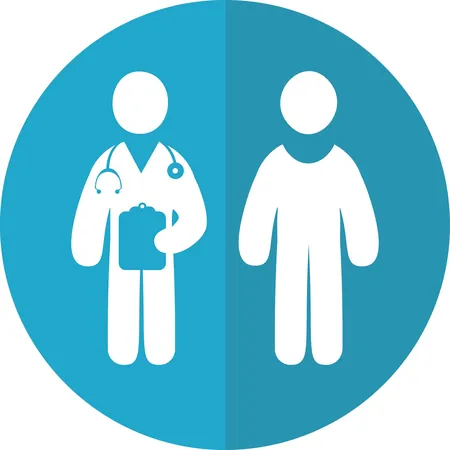
Why Black Patients Are Hesitant to Join Cancer Clinical Trials: The Role of Spirituality and Mistrust
2024-09-30
Why Black Patients Are Hesitant to Join Cancer Clinical Trials: The Role of Spirituality and Mistrust
A recent study presented at the American Society for Radiation Oncology (ASTRO) Annual Meeting reveals significant factors influencing Black patients' reluctance to participate in cancer clinical trials—namely, spiritual beliefs and a historically rooted distrust of clinical research. Conducted across two medical centers in Baltimore, the research aims to improve understanding of these issues as they contribute to the stark underrepresentation of Black individuals in cancer studies.
The authors of the study discovered that many Black patients harbor lingering skepticism about clinical trials. Although they expressed trust in their healthcare providers, this trust does not extend to participation in research. The findings underscore the necessity of approaching potential participants with sensitivity and an understanding of their unique concerns. As lead researcher Charlyn Gomez, a medical student at the University of Maryland School of Medicine, explains, conversations around trial participation must delve deeper than simply discussing consent forms or the trial's objectives.
"Engaging with patients means recognizing their priorities, including their spiritual beliefs and the historical context of their mistrust in medical research, often tied to structural racism and unethical practices," Gomez notes. There is a silver lining, however—patients demonstrated significant trust in their medical teams, providing a potential avenue for building rapport and encouraging participation in trials.
Historically, clinical trials in the U.S. have predominantly featured white male participants. Despite legislative efforts in 1993 aimed at increasing diversity in research populations, the statistics tell a troubling story: a mere 7.2% of participants in cancer clinical trials reported as Black, even though this group represents 14% of new cancer diagnoses. Alarmingly, the participation gap has widened during the COVID-19 pandemic, further isolating Black patients from potential lifesaving treatments.
The consequences of an underrepresented population in clinical research can be dire. Gomez's team developed a comprehensive questionnaire that collected insights from 97 patients—30% of whom identified as Black—after they completed curative radiation treatment for cancers affecting the gastrointestinal, thoracic, gynecological, and head and neck areas. The survey aimed to capture the factors influencing participants' willingness to join clinical trials.
Interestingly, the study found no significant demographic disparities, such as differences in insurance coverage or education levels, between Black and non-Black patients. Yet, striking distinctions arose in how these groups perceived illness and medical research. Black patients were over five times more likely to believe that diseases were determined by divine will and that wellness was beyond the reach of research efforts. Additionally, a concerning 20% of Black participants felt that research had historically harmed minority populations—a sentiment entirely absent among their non-Black counterparts.
Furthermore, a significant portion of Black patients expressed a fear of being informed about health issues they would prefer to remain ignorant of, highlighting a distrust ingrained by historical traumas, such as the infamous Tuskegee Syphilis Study. From 1932 to 1972, this unethical research did not provide informed consent to 399 Black men, resulting in profound harm and lasting scars within the community.
“In order to rectify these injustices and enhance the representation of Black patients in vital clinical trials, it is crucial for healthcare professionals to actively work on rebuilding trust,” said Gomez. “If we aim to create new treatment modalities, we cannot afford to overlook those who need them most.”
To address the critical underrepresentation of Black patients in clinical trials, Gomez suggests incorporating targeted training programs for physicians and researchers, enabling them to embark on meaningful conversations about these historical issues and their implications today.
Engaging families and community members in the discussion of clinical trial participation could also help mitigate fears and misconceptions, providing a more comprehensive support system for patients as they navigate their choices. “In many cases, these decisions are not made alone; they're collective, involving input from family and community,” Gomez concludes.
As we move forward, addressing the challenges faced by Black patients in accessing and trusting clinical research is not just a medical imperative but a moral one, and it will require a concerted effort from all stakeholders in the healthcare industry.


 Brasil (PT)
Brasil (PT)
 Canada (EN)
Canada (EN)
 Chile (ES)
Chile (ES)
 España (ES)
España (ES)
 France (FR)
France (FR)
 Hong Kong (EN)
Hong Kong (EN)
 Italia (IT)
Italia (IT)
 日本 (JA)
日本 (JA)
 Magyarország (HU)
Magyarország (HU)
 Norge (NO)
Norge (NO)
 Polska (PL)
Polska (PL)
 Schweiz (DE)
Schweiz (DE)
 Singapore (EN)
Singapore (EN)
 Sverige (SV)
Sverige (SV)
 Suomi (FI)
Suomi (FI)
 Türkiye (TR)
Türkiye (TR)